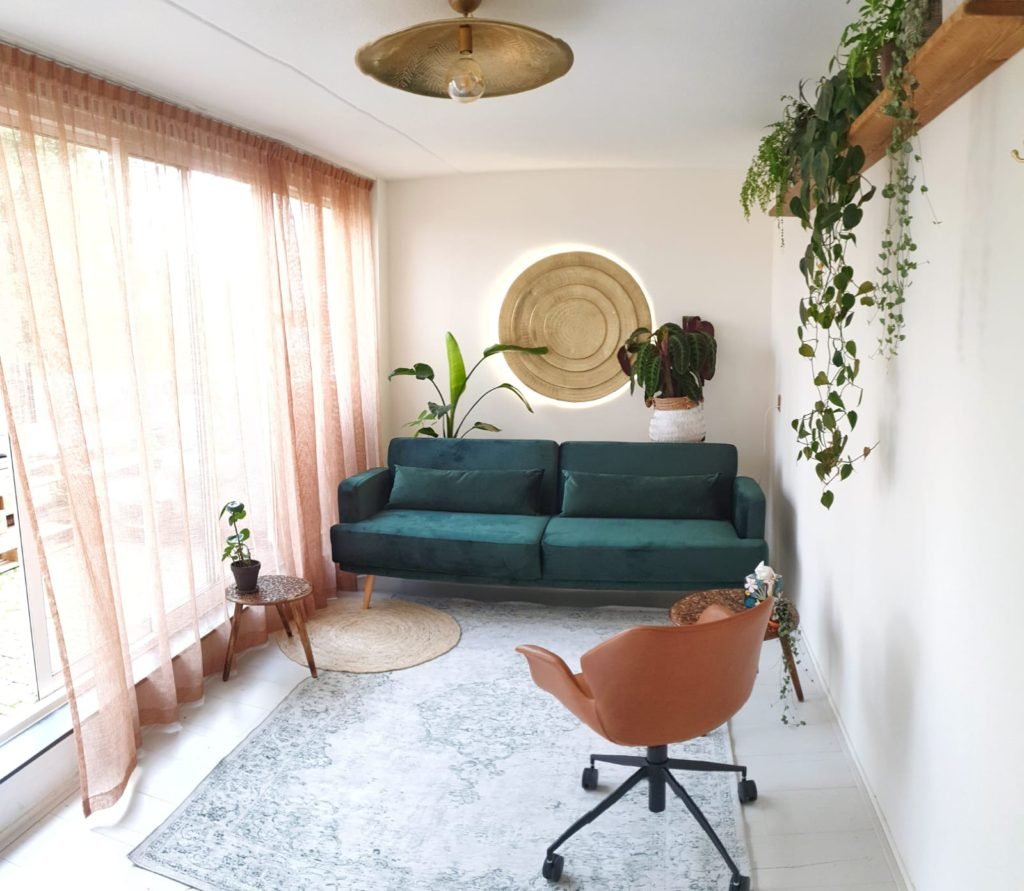
Individual therapy
The quality of our relationships, and what we have experienced in relation to others, can immensely influence our wellbeing. Feeling stuck and not knowing where to go can drain all our energy and deprive us of our everyday joy in life. With therapy we can create more space to look at events that happened or are happening in your life. We can go to the heart of the matter together and approach emotions that might seem overwhelming. Together, we can help you regain a sense of balance and confidence. We’ll create space for you to heal, and to be able to breathe deeply once again.
I work with people who have experienced trauma, anxious or depressive feelings and thoughts, or who experience a general decreased wellbeing, amongst others.
Relationship therapy
For many people, coming to relationship therapy is a big step. And that makes a lot of sense. Bringing a third person into something as private and intimate as your relationship is not always easy. It takes courage, and determination.
So you can be proud of yourself.
The simple fact that you are reading this, looking for ways to improve your relationship, is incredibly valuable. And there is hope: 3 out of 4 couples who embark on an EFT therapy journey reconnect deeply with each other.*
How does relationship therapy work?
Sex, how we spend our time, finances, family, an affair, important life decisions… these are some of the most common topics that couples fight about.
For every relationship the origin of disconnection is different, but when people find themselves stuck in a specific conflict or sense of separation, they become increasingly tired or lose hope as they don’t seem to be able to reconnect or understand each other.
In our sessions we’ll create space to talk about the problems you’re encountering in your relationship. We’ll also go deeper and look at the powerful dynamics and emotions that keep you stuck. It isn’t just increasing conflict that causes relationships to go awry, but also the decrease in affection and emotional responsiveness. We’ll make sense of how disconnection happens, and rebuild your accessibility to each other, turning your relationship into a safe emotional haven.
What will happen in our session together?
First, I’ll work to get an image of who you are and where you come from. Together, you have lived a life that no one but you fully know. The first one or two sessions will be with you together, followed by one where you each attend a session with me individually. This is important for a therapist to not build any partiality, and to give you a chance to tell your own side of the story. If you are in a non-monogamous constellation, we’ll discuss together who should come to the first sessions. During these evaluative sessions, we can decide together if I am the best person to provide the services you are in need of right now. More than anything, you need to feel safe with me and have trust in my capabilities.
From the next session onwards, all of us are back together, and we’ll look deeply into what happens when you feel disconnected, and how to restore your bond. Often, when looking at the moments of disconnection in your relationship, we’ll be able to see an underlying pattern that repeats itself. It’s important that you learn to recognize this cycle and understand why it happens, where it comes from, and the impact it has on yourself and your partner. When this cycle becomes visible, it becomes clear that the disconnection is not someone’s fault, but that you inadvertently get stuck in this together. One person’s sensitivities will trigger the other person’s hurts, and vice versa. Being able to recognize the cycle and point it out to each other, marks an important moment in your healing process. People in these stages report that they fight less, are able to calm down easier, and are able to recognize what is happening as it’s happening. However, this doesn’t mark the end of our work together. Less conflict doesn’t necessarily mean more emotional closeness. The next step is to build exactly that; helping you to become vulnerable and open with each other once again. In the final stages of our work, we’ll try to find new solutions to old problems that have kept you stuck in the past and set you up to continue your life and relationship with love and confidence.
The length of relationship therapy depends on your personal situation and your needs. Most people notice positive changes and gain new insights after only a couple of sessions, and on average people end therapy anywhere between 15 and 25 sessions. In case of a complex history or deep wounds such as a recent affair, 30 sessions or more might be needed. Treatments are always in consultation.
* Empirical research has supported the effectiveness of EFT, showing that 70-75% of couples move from distress to recovery and about 90% show significant improvements (the best results of any couple therapy) and evidence shows that these positive effects last over time.
Sources:
Johnson, Susan M.; Greenberg, Leslie S. (July 1985b). “Emotionally focused couples therapy: an outcome study”. Journal of Marital and Family Therapy.
Johnson, Susan M.; Wittenborn, Andrea K. (June 2012) “New research findings on emotionally focused therapy: introduction to special section”. Journal of Marital and Family Therapy.